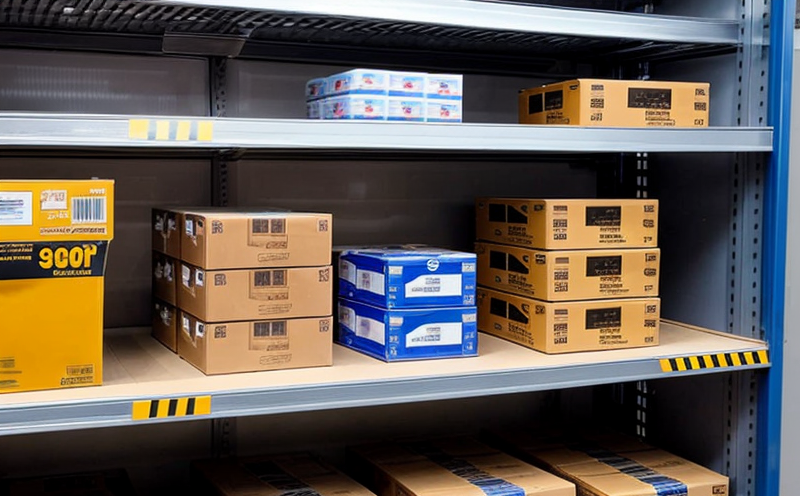Packaging Compression Strength Testing
In the medical device industry, packaging integrity and shelf life are critical factors that determine the quality of a product. Proper packaging not only protects the medical devices from damage but also ensures their safety and efficacy throughout the supply chain. One crucial aspect of ensuring this integrity is through comprehensive testing, particularly focusing on packaging compression strength.
Packaging compression strength testing evaluates how well the packaging withstands external pressures that can occur during shipping, storage, or handling. This test helps to determine whether the packaging will protect the medical devices from physical damage and contamination. The test involves applying a controlled force to the package until it deforms or fails.
The importance of this testing cannot be overstated. It ensures that the packaging is robust enough to handle real-world conditions, thereby protecting the integrity of the product. Failure in this area can lead to non-compliance with regulatory standards and potentially costly recalls.
Our laboratory specializes in providing accurate and reliable compression strength tests for various types of medical device packaging materials such as cardboard, plastic, foil, and multi-material combinations. We utilize state-of-the-art equipment that adheres to international standards ensuring consistent and repeatable results.
The testing process begins with selecting the appropriate sample size based on the dimensions of the product being packaged. Once the samples are prepared, they are placed into the compression tester. The machine then applies a gradually increasing force until either the package deforms or fails completely.
Our team ensures that all tests follow strict protocols and guidelines set forth by relevant standards like ISO 11607-2 for single-use medical devices. By adhering to these stringent criteria, we guarantee accurate measurements and reliable data which can be used effectively in decision-making processes related to packaging design.
Understanding the impact of external factors such as temperature fluctuations or humidity on packaging integrity is essential when designing effective packages. Our experts consider these variables during testing so that they can provide insights into how different environmental conditions affect the performance of your product's protective shield.
Applied Standards
| Standard Name | Description |
|---|---|
| ISO 11607-2:2019 | Single-use medical devices – Packaging – Part 2: Integrity testing of packages containing sterile medical devices. |
| AAMI T48:2013 | Packaging and Sterilization Processing Requirements for Medical Devices. |
| ASTM D882-17 | Standard Test Method for tensile properties of thin plastic sheets, films, and similar materials by means of tension testing machine. |
Benefits
- Identifies potential weaknesses in packaging design early in the development process, allowing for improvements before mass production begins.
- Avoids costly recalls due to failed package integrity checks during shipping or storage.
- Saves time and resources by identifying issues related to packaging strength at an earlier stage of product lifecycle management.
Environmental and Sustainability Contributions
- Promotes the use of recyclable materials in packaging design, reducing waste generation at end-of-life stages.
- Encourages manufacturers to adopt sustainable practices by providing data on how different environmental factors affect their products' protective shields.
- Facilitates compliance with global regulations aimed at minimizing adverse impacts on the environment while ensuring product safety and efficacy.





